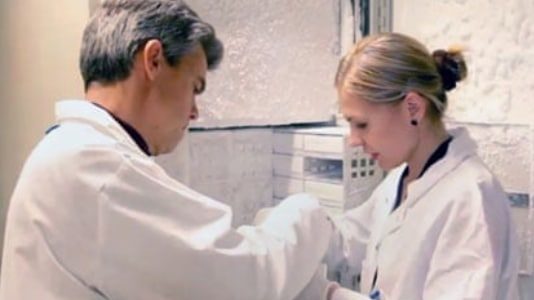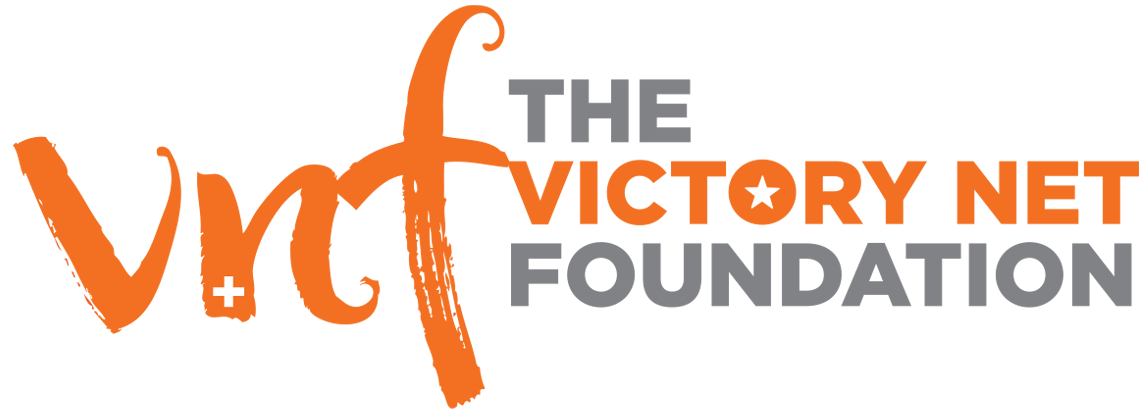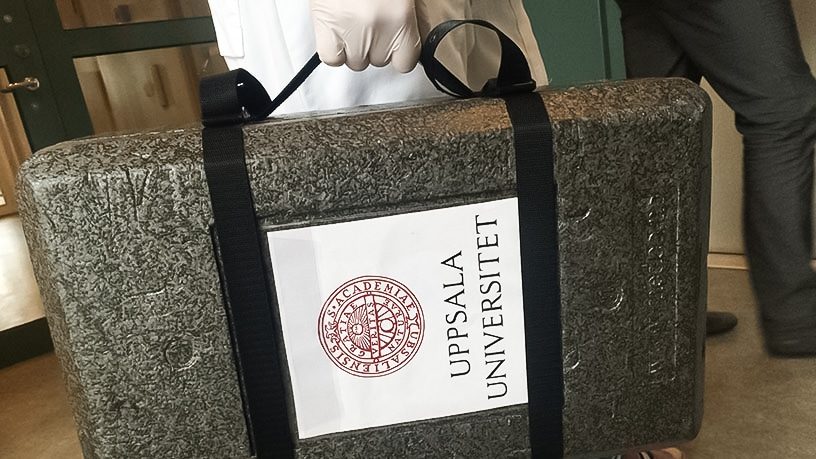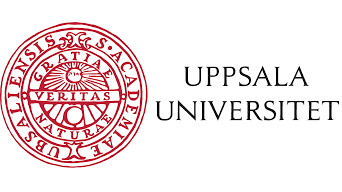Université d'Uppsala
Université d'Uppsala
La faculté de médecine de l’Université d’Uppsala (Suède) est considérée aujourd’hui comme l’un des principaux centres mondiaux de recherche sur les cancers neuroendocriniens.
La Fondation Victory NET soutient les travaux de recherches et essais cliniques d’un virus anti-TNE, menés par l’équipe du département d’immunologie, de génétique et de pathologie de l’Université d’Uppsala.
LES MEMBRES

Professeur Kjell Öberg
Kjell Öberg est professeur d’oncologie endocrinienne au sein de la faculté de médecine à l’Université d’Uppsala.
Ancien chef du département d’oncologie endocrinienne, le Professeur Öberg est spécialisé en endocrinologie et médecine interne. Fort de 40 ans d’expérience dans le domaine des tumeurs neuroendocrines, il est le fondateur du département d’oncologie endocrinienne de l’Hôpital Universitaire d’Uppsala.
Il est également l’un des fondateurs et coordinateurs du « European Neuroendocrine Tumor Society » (ENETS). Il appuie ses recherches sur le traitement AdVince, menées par son équipe et sous la responsabilité du Prof. Magnus Essand.

Professeur Magnus Essand
Professeur de thérapie génique au sein du département d’immunologie, de génétique et de pathologie à l’Université d’Uppsala, le Professeur Essand et son équipe de recherche développent depuis 2008, une approche fondamentalement nouvelle du traitement des tumeurs neuroendocrines. Les recherches portent principalement sur les progrès de l’immunothérapie translationnelle (ou recherche de transfert) du cancer, en se concentrant sur le développement de virus oncolytiques (un procédé d’inoculation visant à stimuler le système immunitaire).
Avant de rejoindre l’Université d’Uppsala, Magnus Essand a travaillé au sein de l’American National Cancer Institute (NCI) et a publié près de 95 articles scientifiques.
Il est également le co-fondateur d’Elicera Therapeuticas AB, une société d’immuno-oncologie en phase clinique, qui développe des thérapies cellulaires et géniques pour le traitement immunitaire du cancer.

Docteur Justyna Leja-Jarblad
Dr. Justyna Leja-Jarblad était chercheuse au sein du département d’immunologie, de génétique et de pathologie de l’Université d’Uppsala.
Justyna a obtenu son Master of Science à l’Université Jagellonne de Cracovie (Pologne), dans le domaine des biotechnologies médicales, puis a effectué son doctorat au sein du groupe de recherche du Professeur Magnnus Essand, à l’Université d’Uppsala.
Ses recherches ont pour but principal de développer des virus comme les agents anticancéreux, principalement sur les tumeurs neuroendocrines et les neuroblastomes, un cancer fréquent chez les enfants.
Two medical pioneers aim to trial a cancer-killing virus. I aim to help out

Two researchers at the University of Uppsala have engineered a virus that will attack cancer. Cheap, precise, with only mild, flu-like side-effects, this plucky little microbe sounds too good to be true. Yet in peer-reviewed articles in top journals, Professor Magnus Essand and Dr Justyna Leja have repeatedly showed that Ad5[CgA-E1A-miR122]PTD views healthy tissue with disdain; it eats only tumours. It is, in effect, a cancer of cancer.
Clinical trial approved for new cancer treatment
The Swedish Medical Products Agency and the Regional Ethics Committee has approved the initiation of a clinical trial for a completely new form of neuroendocrine cancer treatment that uses an oncolytic virus. The virus owes its development to donations from thousands of people all over the world. The researchers behind the virus are professor Magnus Essand and researcher Justyna Leja, both of the Department of Immunology, Genetics and Pathology, Uppsala University, as well as Kjell Öberg, emeritus professor of endocrine oncology at the Department of Medical Sciences, Uppsala University.
ONCOLYTIC VIRUS THERAPY, PART 1 - A POTENTIAL BREAKTHROUGH TREATMENT FOR NEUROENDOCRINE TUMORS
Professor Dr. Kjell Oberg PhD of Uppsala University Hospital in Sweden, speaks about Oncolytic Virus Therapy for Neuroendocrine Tumors (NETs). This talk was recorded on 2 November 2012 at Mt Elizabeth Novena Hospital in Singapore.
In this talk, Dr Oberg describes and illustrates exactly how the virus is developed, how it is targeted to NET cancer tumors, and the potential benefit to patients. The programme was produced by Carcinoid & Neuroendocrine Tumor Society of Singapore.
Oncolytic Virus Therapy, Part 2 - A Potential Breakthrough Treatment for Neuroendocrine Tumors
Professor Dr. Kjell Oberg PhD of Uppsala University Hospital in Sweden, speaks about Oncolytic Virus Therapy for Neuroendocrine Tumors (NETs). This talk was recorded on 2 November 2012 at Mt Elizabeth Novena Hospital in Singapore.
Much has been written about a potential new treatment for neuroendocrine tumors being developed by Dr Oberg’s team at Uppsalla – a treatment which uses customised (ie- molecularly engineered) viruses to target NET cancer tumor cells.
In the lively Q&A session which follows the talk, audience concerns about time-to-market, cost-of-development and potential toxicities are addressed. The programme was produced by Carcinoid & Neuroendocrine Tumor Society of Singapore.
THE ONCOLYTIC VIRUS FUND - UPPSALA UNIVERSITY – PROF MAGNUS ESSAND, UPPSALA UNIVERSITY
Professor Magnus Essand at Uppsala University has during six years developed and tested a new virus treatment against neuroendocrine tumours. The treatment consists of an oncolytic virus which has turned out to be remarkably efficient in destroying neuroendocrine tumours in mice. With enough funding we will be able to start the world’s first human trials with a virus that specifically targets neuroendocrine cancer.
Help us develop a treatment for neuroendocrine cancer – prof Magnus Essand, Uppsala University
The goal of the Oncolytic Virus Fund is to collect money for research on cancer-destroying (oncolytic) viruses and cancer therapeutics for neuroendocrine tumours. With sufficient funds, we will be able to launch the world’s first human trial of an engineered virus that targets neuroendocrine cancer.
Elicera Therapeutics – Advancing cancer immunotherapy
The projects that create the foundation for Elicera Therapeutics are based on many years of research on how cells and viruses can be genetically engineered to trigger a powerful immune response to cancer. The researchers combine different types of immune-activating technologies, each of which gives rise to a multifaceted attack on the tumors. To date, the research group, headed by Uppsala University Prof. Magnus Essand, has developed four drug candidates, two of which are in the field of oncolytic viruses and two in the field of CAR T-cell therapies, and the hope is that their candidates will lead to more effective treatment of neuroendocrine tumors, B-cell lymphoma, brain tumors and pancreatic cancer.
THE TREATMENT OF ADVANCED PANCREATIC NEUROENDOCRINE TUMOURS
The treatment of advanced pancreatic neuroendocrine tumours (pNET) Prof Kjell Öberg – University Hospital, Uppsala, Sweden Prof Kjell Öberg discusses the development of new biomarkers which allow early detection of pNET and identify patients who are at high risk of recurrence after surgery and speaks about the superiority of molecular imaging with PET scan over traditional imaging technologies.
QUI SOMMES-NOUS
LA RECHERCHE
- © 2022 Victory Net Foundation
- Mentions légales
- Designed by webgeneve
- © 2022 Victory Net Foundation
- Mentions légales
- Designed by webgeneve


